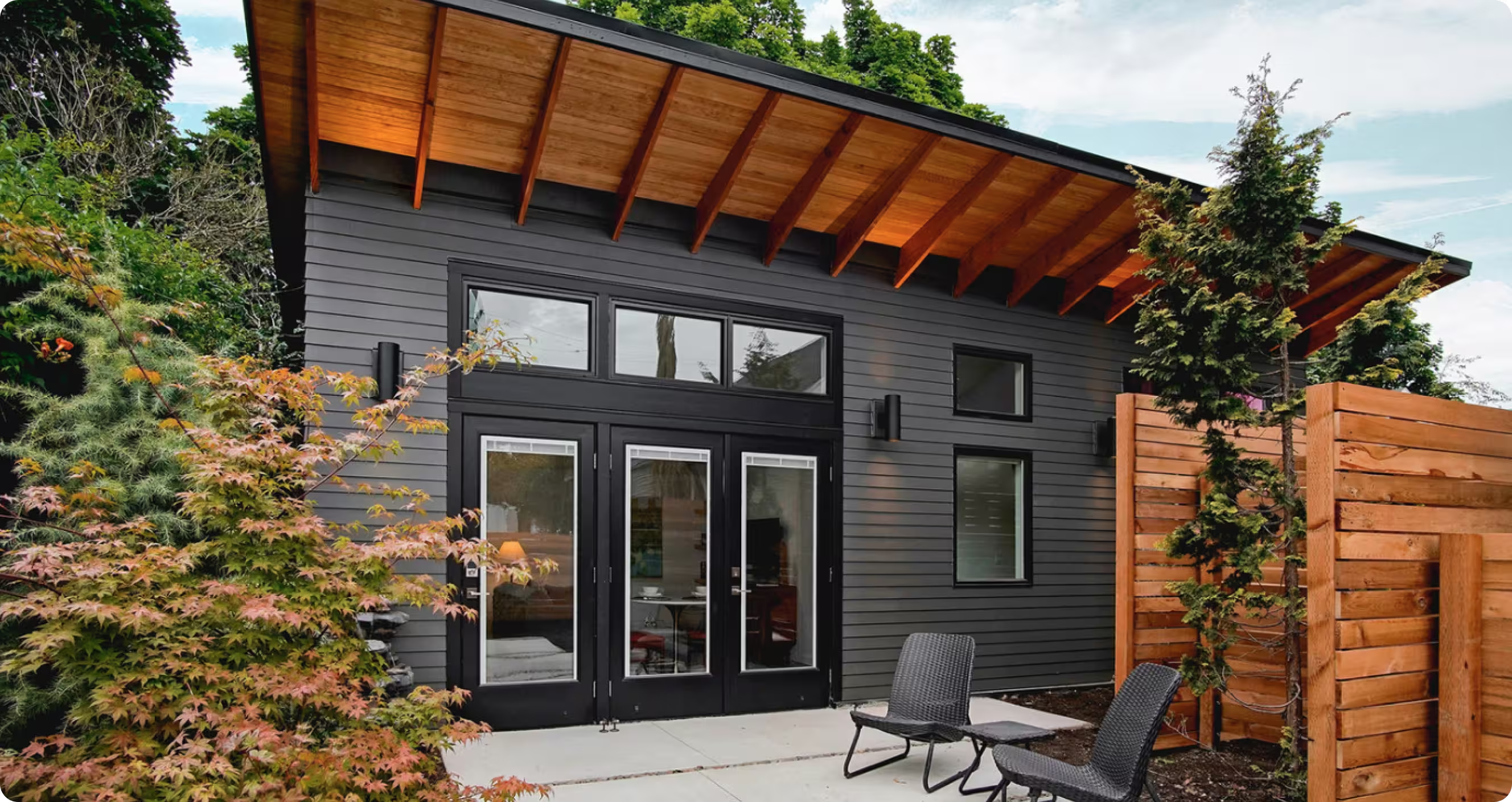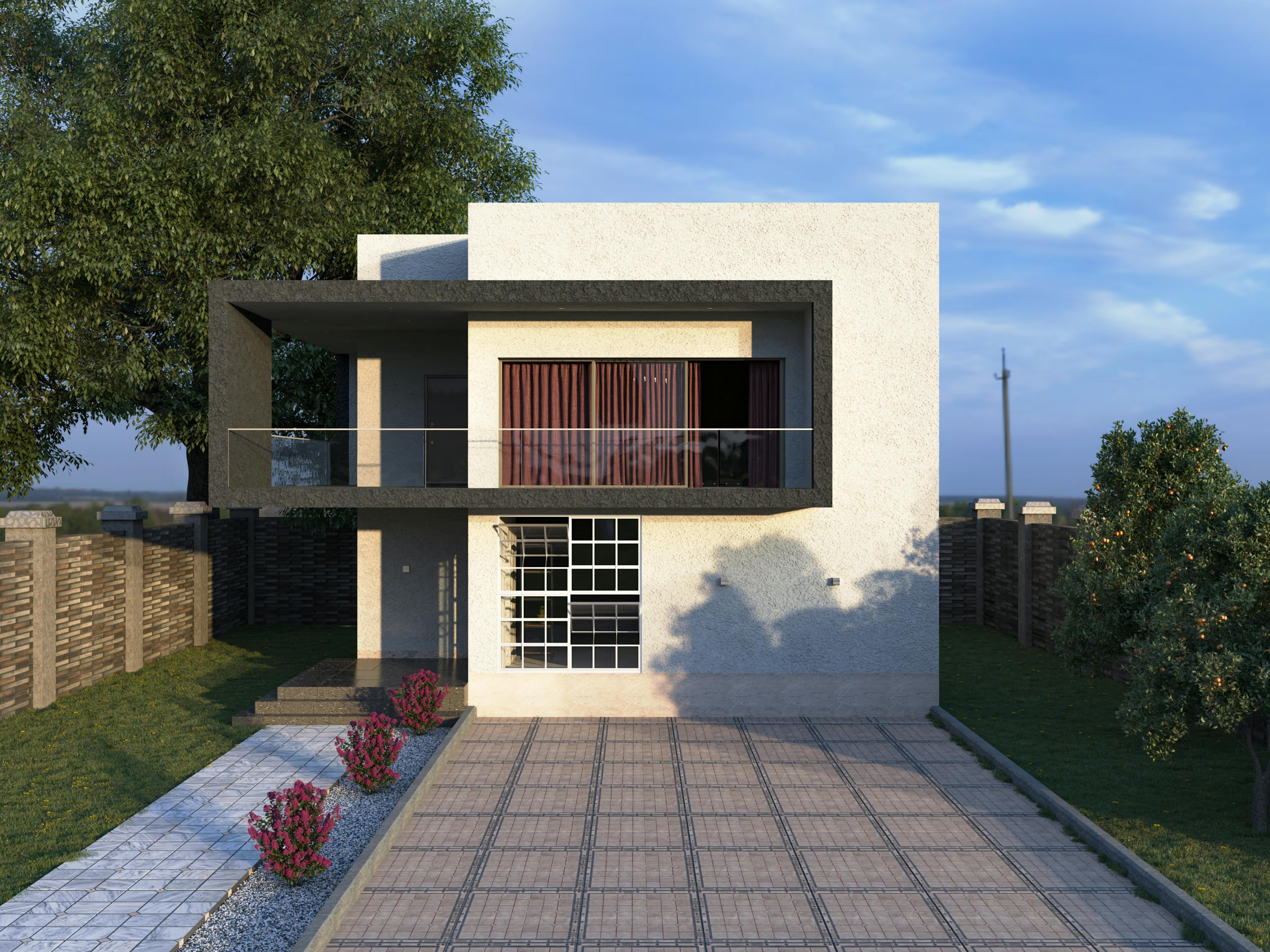What Is an ADU
in Real Estate?

Accessory Dwelling Units (ADUs) are a new phenomenon in real estate that offers homeowners and investors a useful way to maximize a property. So what is an ADU in real estate and how is it distinct from other home additions? ADU Pro will explain the ADU meaning, what they are legally considered to be, and what benefits they offer to help you decide on whether to construct one.
An Accessory Dwelling Unit (ADU) is a secondary dwelling on a property with a main house. An ADU can be a separate building, attached addition, or converted space in the existing dwelling. ADUs provide space for family members to live in, rental income potential, or increased total property value.
Get in touchAn Accessory Dwelling Unit (ADU) is a secondary dwelling on a property with a main house. An ADU can be a separate building, attached addition, or converted space in the existing dwelling. ADUs provide space for family members to live in, rental income potential, or increased total property value.
ADU vs DADU: Key Differences
In studying ADUs vs DADUs (Detached Accessory Dwelling Units), what differentiates them is where they are situated:
ADU
ADUs can be built onto a main dwelling or built in an existing building (for example, garage or basement conversion).
DADU
DADUs are standalone buildings - think of a cozy backyard cottage or a small guest house.
Both ADUs and DADUs offer added living space with plenty of flexibility, but DADUs usually need a bit more room on your property and tend to cost more to build.
If you're weighing your options, think about how much space you have, your budget, and how separate you want the new living area to feel. DADUs are great if you're looking for a private space for guests or a rental unit. On the other hand, an ADU that's attached to your main home is often more budget-friendly and can be simpler to get permitted.
If you're weighing your options, think about how much space you have, your budget, and how separate you want the new living area to feel. DADUs are great if you're looking for a private space for guests or a rental unit. On the other hand, an ADU that's attached to your main home is often more budget-friendly and can be simpler to get permitted.

ADU vs Guest House:
Are They the Same?
While both provide extra living space, there are key differences between ADUs vs guest houses:
- ADU meaning is that it is a legally independent house with a full bathroom and a kitchen.
- Guest houses may lack a full-fledged kitchen to restrict them to short-term use rather than permanent residence.
It is significant to zoning and rental considerations since ADUs can typically be rented on a long-term basis.
The difference really does matter, especially if you're thinking about renting out the space or using it as long-term housing. ADUs often fall under different building codes and permit rules compared to guest houses. In fact, in many cities, only ADUs can legally be rented out
The difference really does matter, especially if you're thinking about renting out the space or using it as long-term housing. ADUs often fall under different building codes and permit rules compared to guest houses. In fact, in many cities, only ADUs can legally be rented out
benefits
Why Build an ADU or Garage Conversion?
Boost Your Home’s Value
Adding an ADU can increase your property’s value by 20 to 35%.
Earn Extra Income
Adding an ADU can increase your property’s value by 20 to 35%.
Make Space for What Matters
Adding an ADU can increase your property’s value by 20 to 35%.
Energy-Efficient and Resource-Saving
Adding an ADU can increase your property’s value by 20 to 35%.
A Budget-Friendly Alternative
Adding an ADU can increase your property’s value by 20 to 35%.

ADU vs Addition:
Which is the Better Option?
Homeowners often compare ADUs vs additions when looking to expand their living space. Here are the differences:
- ADUs are separate living areas with a bathroom and a kitchen and are ideal for rental income or multigenerational family use.
- Home additions expand the primary residence, providing extra rooms but not independent living quarters.
Just something to think about - ADUs give you a lot of flexibility down the road. You can rent them out for some extra cash, use them as a guest house, or turn one into your own little work-from-home spot. Plus, in a lot of California cities, the rules around ADUs are actually more relaxed, and they can bump up your property value more than a regular addition. So if you're thinking about the future, whether it’s making a smart investment or just keeping your options open - an ADU might be the better move.
Understanding ADUs
What Dwelling Type to Choose
Curious about those charming little homes popping up in backyards across Southern California? They’re called ADUs, or Accessory Dwelling Unit — and they’re changing the way people live, build, and invest. ADUs are secondary homes built on the same property as a primary house. They come in many designs and forms:
Attached ADU
Give your garage a new purpose by turning it into a fully livable space - no need to add square footage or expand your lot. It’s a smart way to make the most of what you already have.
Conversion ADU
Give your garage a new purpose by turning it into a fully livable space - no need to add square footage or expand your lot. It’s a smart way to make the most of what you already have.
Detached ADU
Give your garage a new purpose by turning it into a fully livable space - no need to add square footage or expand your lot. It’s a smart way to make the most of what you already have.
Junior ADU (JADU)
Give your garage a new purpose by turning it into a fully livable space - no need to add square footage or expand your lot. It’s a smart way to make the most of what you already have.
Is an Accessory Dwelling Unit Right for You?
ADUs are one of the smartest ways for homeowners to unlock income, space, and property value. Not sure if one’s right for you? Start here:
You want to generate passive rental income—without selling your property.
You need extra space, like a mini home ADU, for family, guests, or multigenerational living.
You’d like to boost your home’s market value before selling.
You work remotely and want a private home office or creative studio on your property.
You want a flexible space that can evolve—host guests, rent on Airbnb, or support aging parents.
You live in an area with ADU-friendly regulations that make building easier and more cost-effective.
Get Started with ADUSCALE Today
Ready to make the most of your property? Whether you're thinking about a small home ADU, a tiny home, or a fully detached ADU, we’re here to help.